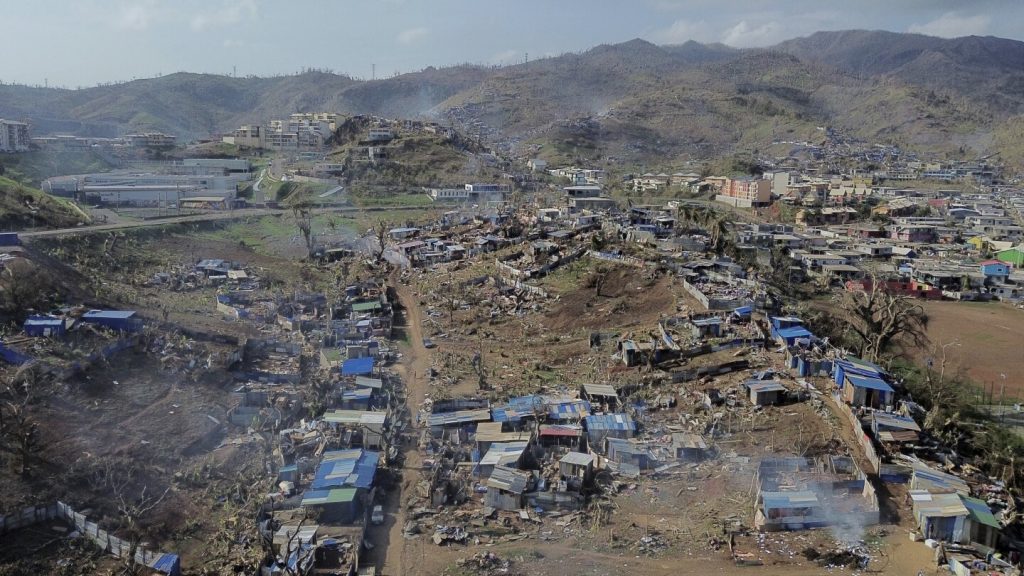French Prime Minister François Bayrou visited the Indian Ocean territory of Mayotte to unveil a recovery plan following the devastation caused by Cyclone Chido. The death toll has been updated to 39, with the possibility of it ranging from a few dozen to a few hundred. There is an urgent need to rebuild the region, and Bayrou stated that an emergency law aiming to restore Mayotte within two years will be submitted to parliament in January. He also announced a ban on rebuilding informal settlements that were destroyed by the storm, which were home to migrants from African nations in the region hoping to make their way to Europe.
Bayrou outlined plans to restore electricity to all homes by the end of January, with the support of 200 workers and emergency generators. Water production is expected to reach pre-cyclone levels by January 6th, and upgrades to the distribution network are set to be completed by mid-2025. Additionally, 200 Starlink antennas will be deployed for emergency communications in the region. Education has also been disrupted, with many schools destroyed. Classes are set to resume on January 13th, with special provisions for exam students. Temporary schooling in mainland France is being considered to provide education to those affected by the cyclone.
In addition to Mayotte, Mozambique was also hit by Cyclone Chido, resulting in 94 reported deaths according to the National Institute of Risk and Disaster Management. Meanwhile, in Malawi, the death toll has risen to 13, as reported by the presidential office. The impact of the cyclone has been severe in multiple regions, highlighting the urgent need for assistance and recovery efforts. The French government is working to provide essential services and infrastructure to help rebuild the affected areas and support the affected communities.
The visit of French Prime Minister François Bayrou to Mayotte comes after French President Emmanuel Macron’s visit to the region. Some Mayotte residents have alleged that the French government neglected them in the past, leading to frustrations among the local population. The new recovery plan aims to address these concerns and provide necessary assistance to rebuild the devastated region. With a focus on rebuilding infrastructure, restoring essential services, and offering support to the affected communities, the recovery plan aims to bring Mayotte back to its pre-cyclone state within the next two years.
The devastation caused by Cyclone Chido in Mayotte has highlighted the vulnerability of the region to natural disasters and the need for better disaster preparedness and response strategies. The French government’s commitment to rebuilding Mayotte and providing essential services to the affected population is crucial in ensuring that the region can recover from the disaster effectively. By implementing emergency measures, banning informal settlements, and deploying resources for communication and education, the government is working towards a sustainable recovery for Mayotte and other regions affected by Cyclone Chido. In the face of this tragedy, the resilience and determination of the local communities, along with the support from the government, will be essential in rebuilding and restoring life in the affected areas.














